
John Edward Prine was an American singer-songwriter of country-folk music. Widely cited as one of the most influential songwriters of his generation, Prine was known for his signature blend of humorous lyrics about love, life, and current events, often with elements of social commentary and satire, as well as sweet songs and melancholy ballads. He was active as a composer, recording artist, live performer, and occasional actor from the early 1970s until his death.

Todd Daniel Snider is an American singer-songwriter whose music incorporates elements of folk, rock, blues, alt country, and funk.

Diamonds & Rust is the sixteenth studio album by American singer-songwriter Joan Baez, released in 1975. The album covered songs written or played by Bob Dylan, Stevie Wonder, The Allman Brothers, Jackson Browne and John Prine. Diamonds & Rust, however, also contains a number of her own compositions, including the title track, a distinctive song written about Bob Dylan, which has been covered by various other artists.
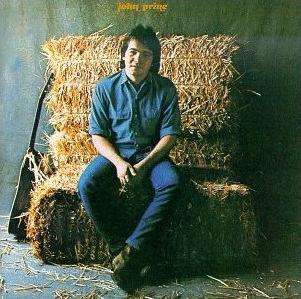
John Prine is the debut album by American country/folk singer-songwriter John Prine, issued by Atlantic Records in 1971. In 2012, the album was ranked number 452 on Rolling Stone magazine's list of the 500 greatest albums of all time. It was later ranked number 149 in a revised version of the list published in 2020.

Souvenirs is a studio album by John Prine, released in 2000. Originally intended for German-only release, the album consists of new performances of some of Prine's most popular early songs.
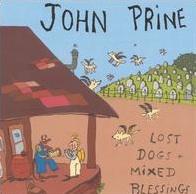
Lost Dogs and Mixed Blessings is the 12th studio album by American folk singer John Prine, released in 1995. The cover artwork is by John Callahan.

Aimless Love is the eighth album by American folk singer and songwriter John Prine, released in 1984. It is his first release on his independent record label, Oh Boy Records.
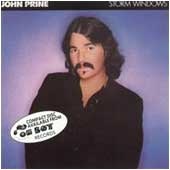
Storm Windows is the seventh album by American folk singer and songwriter John Prine, released in 1980. It was his last release on a major label; he joined Al Bunetta and Dan Einstein to form Oh Boy Records, on which all his subsequent recordings were released.

Pink Cadillac is the sixth studio album by the American musician John Prine, released in 1979 on Asylum Records. The working title was Storm Windows, which Prine used for his next album.

Bruised Orange is the fifth album by American folk singer and songwriter John Prine, released on May 16, 1978.
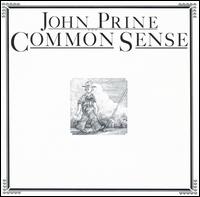
Common Sense is the fourth album by American folk singer and songwriter John Prine, released in 1975.

Sweet Revenge is the third album by American country and folk singer and songwriter John Prine, released in 1973.
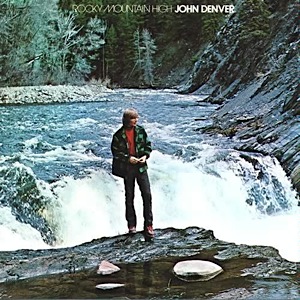
Rocky Mountain High is the sixth studio album released by American singer-songwriter John Denver in September 1972. It was his first US Top 10 album, propelled by the single "Rocky Mountain High", and in addition reached no. 11 in the UK and no. 1 in Canada. The album's cover photograph was taken at Slaughterhouse Falls, Rio Grande Trail, Aspen, Colorado.
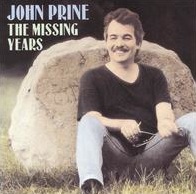
The Missing Years is the 10th studio album by American folk musician John Prine, released in 1991 on Oh Boy Records. It won the Grammy Award for Best Contemporary Folk Album. In July 2003 the label released a deluxe vinyl reissue of the album with a bonus track called "The Third of July" from Prine's appearance on the PBS concert series Sessions at West 54th in 2001.

Once Upon a Rhyme is the fourth studio album by American country singer David Allan Coe. It was released in 1975 on Columbia.

German Afternoons is the ninth album by American folk singer and songwriter John Prine, released in 1986.

John Prine Live is a live album by American folk singer and songwriter John Prine, released in 1988. It was originally released as a double-LP.
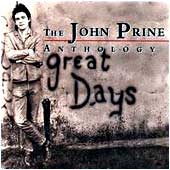
Great Days: The John Prine Anthology is a compilation album by American folk singer John Prine, released in 1993.

Prime Prine is a compilation album by American folk singer John Prine, released in 1976. It concluded Prine's run with Atlantic Records. No one associated with Prine had anything to do with the release, with the singer telling Goldmine in 1992, "A friend of ours in the art department called us one night and snuck us into the place...so we could at least look at the cover before it came out."
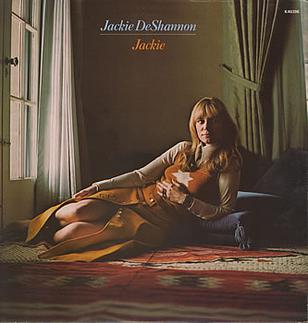
Jackie is an album by American pop singer and songwriter Jackie DeShannon, released in 1972 by Atlantic Records. It was recorded in Memphis with producers Jerry Wexler, Tom Dowd and Arif Mardin.




















